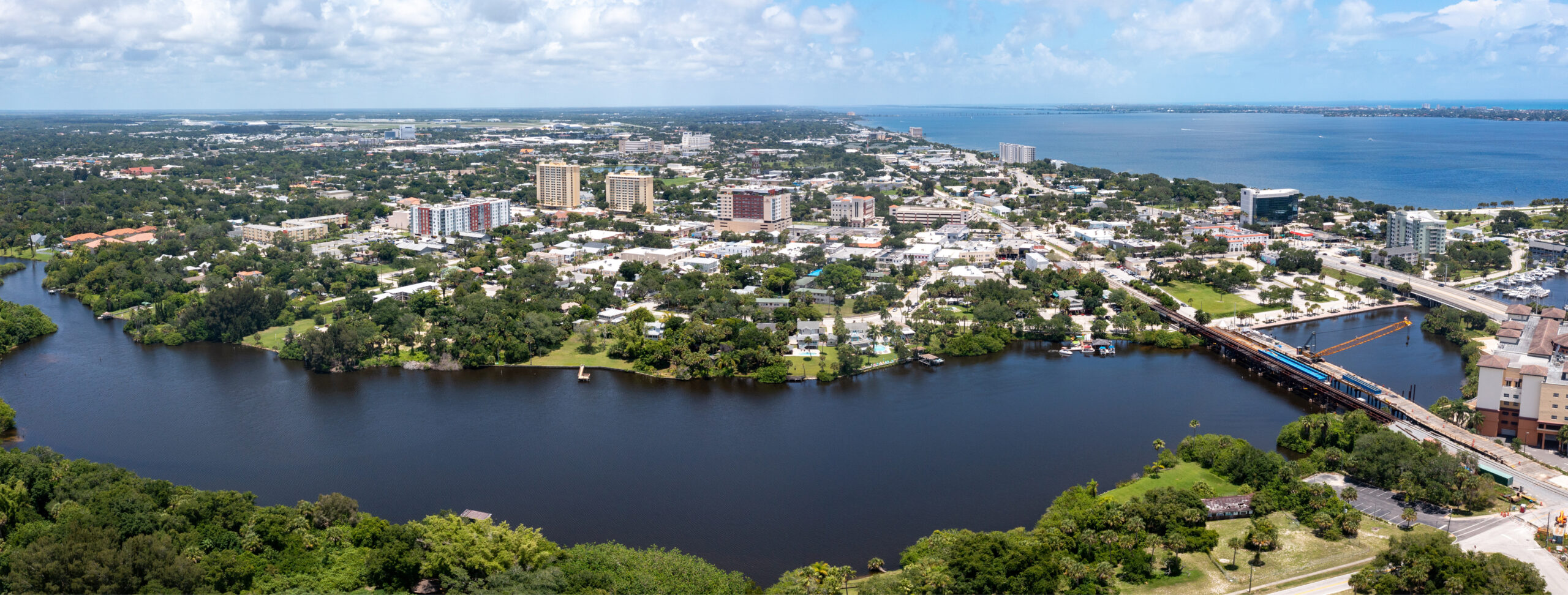While property damage can often lead to civil rather than criminal penalties, the likelihood of facing criminal charges are much higher when a DUI is involved. This is because the state views drinking or the use of controlled substances as irresponsible and limits the whatever extenuating circumstances may be available for a normal property damage case.
Brevard County Property Damage DUI Attorneys
Any DUI charge is scary, and the presence of property damage increases your offenses substantially. These charges are serious and can eventually lead to consequences as harsh as full license revocation.
If you or a loved one have been charged with a DUI you need to contact an experienced DUI defense attorney immediately.
Our office is located in Melbourne, Florida and we proudly serve the surrounding communities of Palm Bay, Titusville, Rockledge, Merritt Island, Cocoa, and Satellite Beach in Brevard County, Vero Beach and Sebastian in Indian River County, Deltona and Dayton Beach in Volusia County, and Kissimmee and Poinciana in Osceola County.
Contact Germain Legal by calling (321) 775-3559 or submit an online form today to start building your defense.
What Is a DUI Resulting in Property Damage?
- Driving Under the Influence: According to Florida Statutes Section 316.193(3)(a)1, the prosecutor must prove that the individual was driving or in actual physical control of a vehicle.
- Impairment or BAC: The prosecutor must show that the individual was either:
- Impaired by alcohol, chemical substances, or controlled substances to the extent that their normal faculties were affected, or
- Had a blood-alcohol level of 0.08% or higher.
- Property Damage: The prosecutor must prove that the individual, while driving under the influence, caused damage to the property of another person. This includes damage to vehicles, buildings, or any other type of property.
What Are the Penalties for DUI with Property Damage?
| Offense | Penalty |
| First DUI Resulting in Property Damage | Classification: Misdemeanor of the First Degree Fine: Up to $1,000 Imprisonment: Up to 1 year |
| Violation of Duties Upon Damaging Unattended Vehicle or Other Property | Classification: Misdemeanor of the Second Degree Fine: Up to $500 Imprisonment: Up to 60 days |
Enhanced Penalties
If a person is driving under the influence and their blood alcohol level is 0.15 or higher, or if a minor (under 18 years old) is in the vehicle at the time of the offense, the penalties for DUI resulting in property damage are more severe. Also, in cases where the DUI offense not only causes property damage but also results in non-serious personal injury, the individual can still face enhanced penalties.
What Are Potential Alternatives to Jail?
Probation: Florida law allows judges to place individuals convicted of DUI resulting in property damage on probation instead of sentencing them to jail. The court may impose specific conditions during probation, such as regular check-ins with a probation officer.
Substance Abuse Treatment: The court may require the convicted person to complete a substance abuse treatment program as part of their sentence. This can include attending a DUI program that involves both educational sessions and a psychosocial evaluation, which may result in referral to further treatment if necessary.
Community Service: Instead of or in addition to jail time, the court may order the individual to complete 50 or more hours of community service hours.
Ignition Interlock Device: The court may order the installation of an ignition interlock device on any vehicle the person owns or routinely drives. This device prevents the vehicle from starting if the driver has been drinking.
Vehicle Impoundment or Immobilization: As part of probation, the court may order the impoundment or immobilization of the defendant’s vehicle. This means that the vehicle is either stored at a facility or rendered inoperable for a certain period.
Educational Programs: Judges may order the individual to attend and complete specific DUI education programs. These programs focus on educating the offender about the dangers of impaired driving and the consequences of such actions, which can reduce the likelihood of reoffending.
Restitution: If the DUI incident resulted in property damage, the court might order the offender to pay restitution to the victim for the repair or replacement of damaged property. This financial compensation serves as an alternative to incarceration while holding the offender accountable for their actions.
What Are Some Defenses?
Challenging the Traffic Stop: The defense can argue that the officer did not have a valid reason to stop the vehicle. If the stop is deemed unlawful, any evidence gathered during the stop, including evidence of DUI, may be excluded.
No Damage to Property: The defense can argue that the property damage was either non-existent or not caused by the driver, which could reduce the severity of the charges or lead to a dismissal.
Questioning the Officer’s Observations: The defense can argue that the officer’s observations, such as slurred speech or unsteady movements, were not because of alcohol or drugs. Fatigue, illness, or nervousness could have caused these symptoms.
Inaccurate Breathalyzer Results: The defense can question the accuracy of the breathalyzer. Issues such as improper calibration, maintenance errors, or incorrect usage by the officer can lead to inaccurate readings.
Improper Administration of Field Sobriety Tests: The defense can argue that the field sobriety tests were not administered correctly. Factors like uneven surfaces, poor lighting, or the suspect’s physical condition can affect the results.
Lack of Control Over the Vehicle: The defense can argue that the driver was not in actual control of the vehicle at the time of the incident. For example, if the vehicle was parked and not running, and the driver was not in the vehicle, it could be argued that the driver was not “driving” under the influence.
Can a DUI Lawyer Defend Me?
If you’ve been charged with DUI resulting in property damage, you might feel overwhelmed and unsure of your next steps. A lawyer who handles these specific cases can provide crucial support during this stressful time. Here’s how they can help you:
First, your lawyer will guide you through the legal process. DUI cases involving property damage can be more complicated than standard DUI charges, so it’s important to have someone who knows how the system works. They will help you understand what to expect, what your rights are, and what the potential outcomes might be.
Your lawyer will also work to minimize the impact of the charges on your life. They can negotiate with the prosecutor on your behalf, potentially reducing the penalties you might face. This could include negotiating for lesser charges, lower fines, or a reduced sentence. In some cases, they might help you avoid jail time altogether.
In addition, your lawyer will handle all the paperwork and court appearances for you. This can be a huge relief, especially if you’re feeling anxious or unsure about how to proceed. They will ensure that everything is filed correctly and on time.
Finally, your lawyer will offer personalized advice based on your specific situation. They can help you make informed decisions, such as whether to accept a plea deal or go to trial. Their goal is to achieve the best possible outcome for you, considering both the legal and personal implications of your case.
Frequently Asked Questions
What is the difference between DUI resulting in property damage and DUI causing serious bodily injury? DUI resulting in property damage involves causing damage to someone else’s property while driving under the influence, typically classified as a misdemeanor. In contrast, DUI causing serious bodily injury is a more severe charge, classified as a felony, and involves causing significant harm to another person. The penalties for DUI causing serious bodily injury are substantially more severe than those for property damage.
Can a person lose their driver’s license after a DUI resulting in property damage? Yes, a person convicted of DUI resulting in property damage can face license suspension or revocation as part of the penalties. The court may order a mandatory suspension depending on the circumstances and the individual’s prior DUI history. This suspension is in addition to other penalties like fines, imprisonment, and probation.
Can DUI resulting in property damage be expunged from a person’s record? DUI resulting in property damage is generally not eligible for expungement in Florida. Because it is considered a serious offense, a conviction remains on the individual’s criminal record permanently. However, if the charges are dropped or the individual is acquitted, they may be able to have the arrest record sealed or expunged.
Is there a mandatory minimum sentence for DUI resulting in property damage? While Florida law imposes minimum fines and penalties for DUI resulting in property damage, there is no mandatory minimum sentence for jail time for a first offense. The actual sentence can vary based on the circumstances, including the severity of the damage, the offender’s prior record, and other factors.
Can a DUI resulting in property damage charge be reduced to a lesser offense? In some cases, an attorney may negotiate with the prosecutor to reduce a DUI resulting in property damage charge to a lesser offense, such as reckless driving. This is more likely if the damage was minimal, there was insufficient evidence of impairment, and the driver cooperated with authorities. A reduction in charges can result in less severe penalties, including reduced fines and no jail time.
What should a driver do if they are involved in a crash that only causes property damage? Under Florida Statutes Section 316.061, the driver must immediately stop their vehicle at the scene or as close to it as possible. They must then return to the scene and remain there until they have fulfilled the requirements of providing their information and rendering aid as required by law. Failing to do so can result in a misdemeanor charge.
Is it required to move a vehicle after a crash that causes property damage? Yes, under Florida Statutes 316.061 and 316.063, if a vehicle involved in a crash is obstructing traffic, the driver is required to make every reasonable effort to move the vehicle out of the way to avoid further traffic issues.
Does hitting a parked car and failing to leave information result in criminal charges? Yes, under Florida Statutes Section 316.063, if a driver hits a parked car or other unattended property and fails to leave their contact information in a conspicuous place or notify law enforcement, they can be charged with a misdemeanor of the second degree.
Additional Resources
Florida Law on DUI Resulting in Property Damage – This Florida law outlines the penalties for driving under the influence (DUI) when it results in property damage. The law also specifies harsher penalties for repeat offenders and those with a higher blood alcohol level at the time of the offense.
Driver’s Duty Upon Damaging Unattended Vehicle – Florida law requires drivers who damage an unattended vehicle or other property in a crash to stop immediately. The driver has to try to locate the owner and provide their contact and vehicle information. If unable to locate the owner, the driver should leave a written notice on the damaged property and notify the nearest police department.
Involved in a Crash? – This guide from the Florida Department of Highway Safety and Motor Vehicles provides steps to take if you’re involved in a crash. It covers legal requirements, such as when to report a crash to law enforcement and how to exchange insurance information. The guide also covers liability insurance and handling property damage.
Hire a Property Damage DUI Attorney
If you or a loved one have been charged with a DUI you need to contact an experienced DUI defense attorney immediately.
Our office is located in Melbourne, Florida and we proudly serve the surrounding communities of Palm Bay, Titusville, Rockledge, Merritt Island, Cocoa, and Satellite Beach in Brevard County, Vero Beach and Sebastian in Indian River County, Deltona and Dayton Beach in Volusia County, and Kissimmee and Poinciana in Osceola County.
Contact Germain Legal by calling (321) 775-3559 or submit an online form today to start building your defense.



